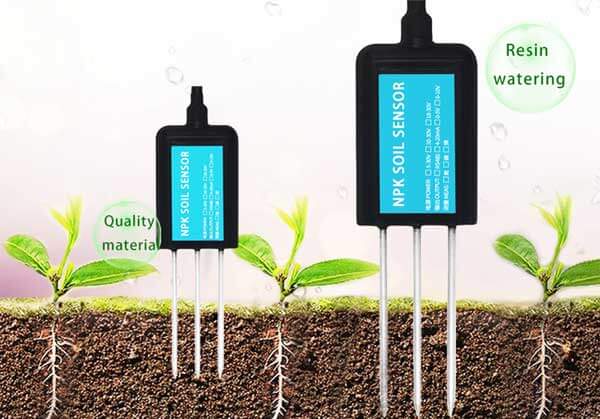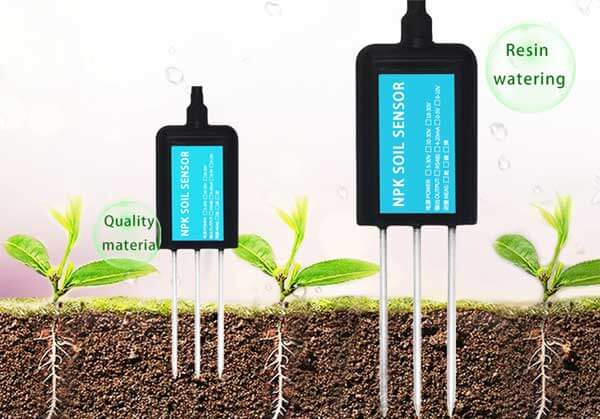In recent years, the field of agriculture has undergone a significant transformation due to advancements in technology. One such technological innovation that is revolutionizing the way we approach agriculture is soil sensors. These devices, equipped with various sensors and probes, provide real-time data on soil conditions, allowing farmers to make informed decisions about irrigation, fertilization, and crop management. In this article, we will explore the power of soil sensors and how they are reshaping the agricultural landscape.
Understanding Soil Sensors:
Soil sensors are electronic devices designed to measure and monitor different soil parameters. They are typically inserted into the ground to collect data on factors such as moisture levels, temperature, nutrient content, pH balance, and salinity. The sensors can be either wired or wireless, with wireless sensors offering the advantage of easy installation and remote monitoring. By capturing precise and continuous data, soil sensors provide farmers with valuable insights into soil health and help optimize farming practices.

Optimizing Irrigation Practices:
Water is one of the most critical resources in agriculture, and efficient irrigation practices are essential for sustainable crop production. Soil sensors play a vital role in optimizing irrigation by providing accurate information about soil moisture levels. By monitoring the moisture content at different depths, farmers can determine the optimal time and amount of water needed for irrigation. This data-driven approach avoids under or over-irrigation, reducing water waste and ensuring that crops receive the right amount of water for healthy growth.
Precision Nutrient Management:
Proper nutrient management is crucial for maximizing crop yields and minimizing environmental impact. Soil sensors enable farmers to assess nutrient levels in the soil, helping them make informed decisions about fertilizer application. By monitoring the nutrient content, farmers can determine the precise amount and type of fertilizers required, avoiding excessive use that can lead to nutrient runoff and environmental pollution. This precision nutrient management improves crop health, reduces input costs, and promotes sustainable agriculture.
Monitoring Soil Health:
Soil health is a fundamental aspect of successful agriculture, impacting crop productivity, nutrient availability, and disease resistance. Soil sensors provide farmers with real-time data on various soil parameters, allowing them to monitor soil health closely. These sensors can detect changes in pH levels, salinity, and temperature, which are critical indicators of soil quality. By monitoring these parameters, farmers can take proactive measures to rectify any imbalances, such as adjusting pH levels or implementing soil amendments. This proactive approach ensures that the soil remains healthy, promoting optimal plant growth and yield.
Precision Crop Management:
Farmers can leverage soil sensor data to implement precision crop management strategies. By monitoring soil conditions, they can track the growth and development of crops and identify potential issues at an early stage. For example, soil sensors can detect water stress in plants by monitoring soil moisture levels. This allows farmers to intervene promptly with irrigation adjustments or other necessary measures. Similarly, soil sensors can help identify nutrient deficiencies or excesses, enabling farmers to fine-tune fertilization practices. Precision crop management maximizes yields, minimizes resource wastage, and ensures sustainable farming practices.
Integration with Data Analytics and Farm Management Systems:
To unleash the full potential of soil sensors, integration with data analytics and farm management systems is crucial. The data collected by soil sensors can be analyzed using advanced algorithms and machine learning techniques to derive valuable insights. For example, by analyzing historical data, farmers can identify trends and patterns in soil conditions and make informed decisions about future planting and crop rotation strategies. Integration with farm management systems allows for seamless data sharing between different agricultural technologies, enabling farmers to streamline their operations and optimize resource allocation.
Future Prospects:
The future of soil sensors looks promising, with ongoing advancements in sensor technology and data analytics. Researchers are continually improving sensor accuracy, durability, and affordability, making them more accessible to farmers worldwide. Additionally, the integration of soil sensor data with other technologies, such as drones and satellite imagery, holds great potential for enhancing precision agriculture practices. These innovations will enable farmers to monitor larger areas of land more efficiently and make data-driven decisions on a scale previously unimaginable.
Conclusion:
Soil sensors are revolutionizing agriculture by empower






